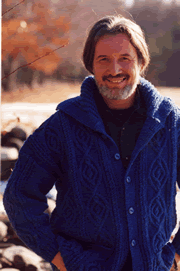
Famed Poet's Theater Comes to Somerville!
With Doug Holder
Richard Cambridge, who incidentally lives in the Republic of Cambridge, has moved his much lauded Poet’s Theater to the Arts Armory in Somerville, Mass, from Club Passim in Harvard Square. I first met Richard Cambridge when we were part of a group of poets working on an anthology “City of Poets: 18 Boston Voices” organized by Don DiVecchio in 2000. I ran into Richard recently at the Armory, and well, here is our interview:
Can you talk about the “Poet’s Theatre” at the “Club Passim” in Harvard Square, Cambridge, that you revived?
When Club Passim went into receivership and had to be reformulated; Tim Mason, a friend and a booking agent for the Club, called and asked me if I wanted to do a ‘Poet’s Theatre” there. I had been doing poetry theatre before then on the local scene. So I jumped at the chance. I really enjoyed doing it. Back when “Passim” was “Club 47” they has a “Poets’ Theatre,” and it was very political. They were really enmeshed with the issues of the day: Civil Rights, Vietnam, etc… It faded out. I started it up again in 1995.
I always looked at poets as something other than someone doing a feature or poem. I came from the performance-poet tradition. But I wanted to move towards something larger. I tried to find people in the community who were folk singers, dancers, and comedians to help me put together poetry theatre. Our first feature was the poet Sebastian Lockwood.
Why have you moved Poet's Theatre to Somerville?
I had been at Club Passim for fifteen years, and it was a great run. The club took a hit in donor contributions after the financial crash in September, 2008, and needed to maximize earnings, even on the off nights.
Have you had any Somerville connections over the years?
Living in mid-Cambridge for so many years, my path winds in and out of Somerville nearly every day: cafes, restaurants, venues, kitty care. New current favorite for me:
Neighborhood Café in Union Square. Long time favorite: the Wine Cask is tops. I miss the open mike Licia Skye and Ryk McIntyre ran at Redbones.
Any new developments in your own poetry life--school, books,....
I’m enrolled in an MFA program in fiction at Stonecoast, U of So. Maine.
I’m polishing a novel about a hitchhiking journey I took in the Nineties.
Can you talk about your view of poetry as a force for change?
I wonder if we are not doing enough, for I see little effect for good in the greater, public arena in our country today. Sure, on a local level, on a personal level, poetry— all the arts are a force for healing, and can and do profoundly affect peoples’ lives.
Split This Rock is a festival that happens every other year in DC. It calls for poets and writers to witness with their words against injustice. I am excited about it because its a gathering of writers who are marching on the White House, not just political activists. Perhaps if word and deed can unite and grow we will be able to effect more change for the good.
I ask myself, okay, what level do I have to write at for the government to take notice and ban my words. Here's an example: Years ago NPR asked Martín Espada to write a poem for "All Things Considered." He wrote a poem about Mumia Abu Jamal, the Black journalist on Death Row. The government calls up NPR and says you can't put that on the radio, so NPR censors the poem. Espada wrote an essay, "All Things Censored" as a response.
In other countries poetry has been a huge force for change. I think of Pablo Neruda who wedded poetic vision with public service all his life, was targeted for many years in Chile for stinging the rulers with his verses. He had to go underground in 1947 to complete his Canto General to avoid arrest and imprisonment.
Will the Theater present on a regular basis?
The second or third Friday of the month. Rockabetty is up next, Feb 21, CD Collins & part of her band.
I don't have a website for this, but am open to ideas. I do have Facebook
****The Center for Arts at the Armory, 191 Highland Avenue, Somerville, MA 02143 | (P) 617.718.2191, (F) 617.718.1755 | (E) info@ArtsattheArmory.org


